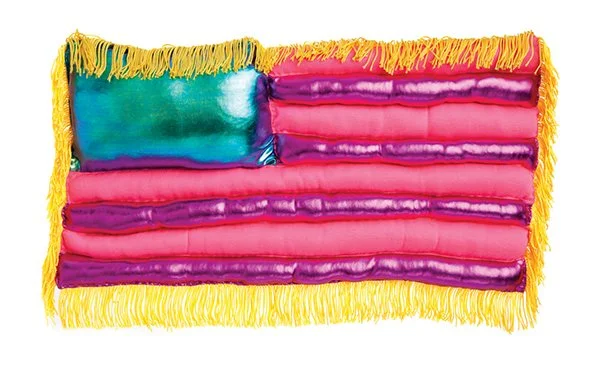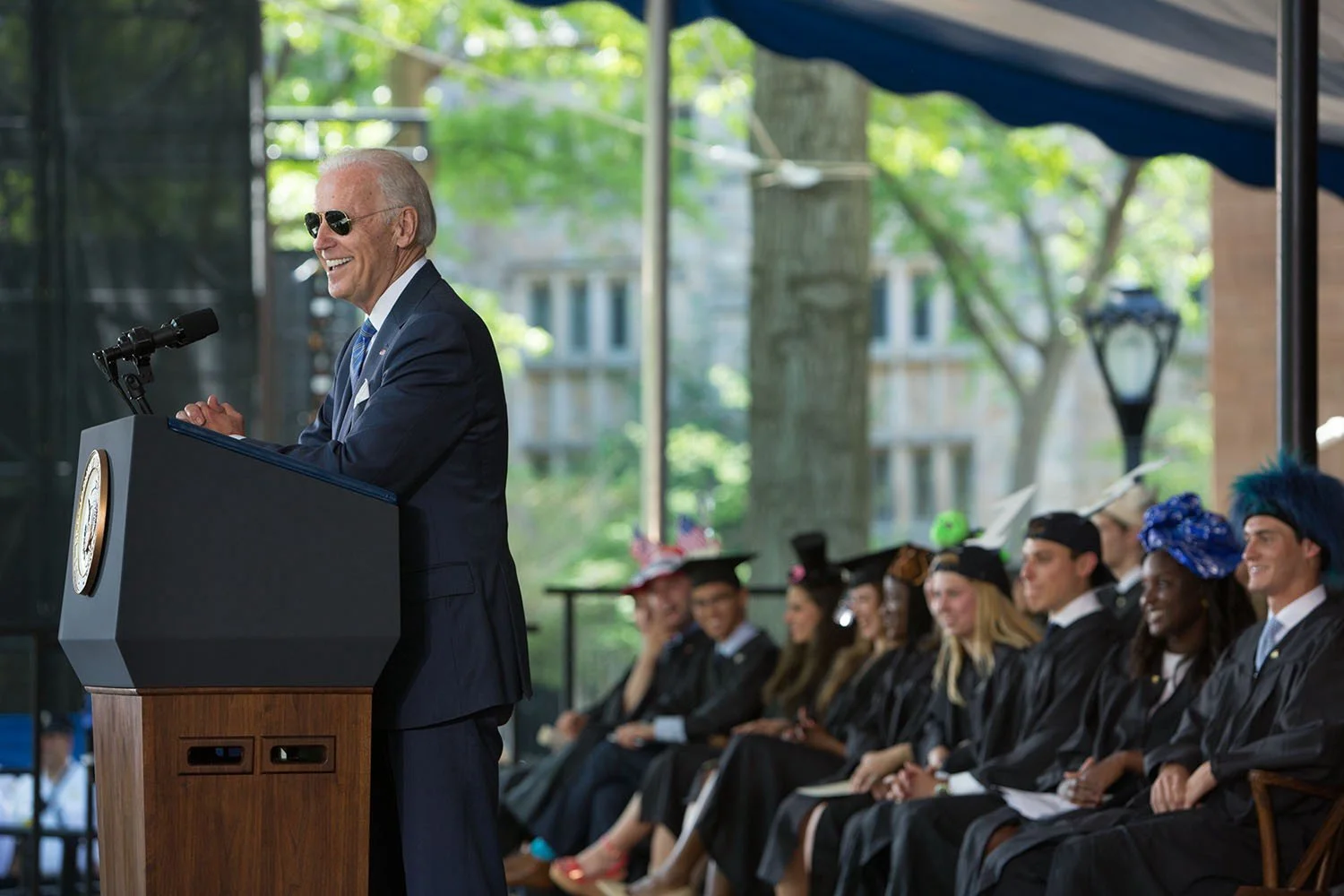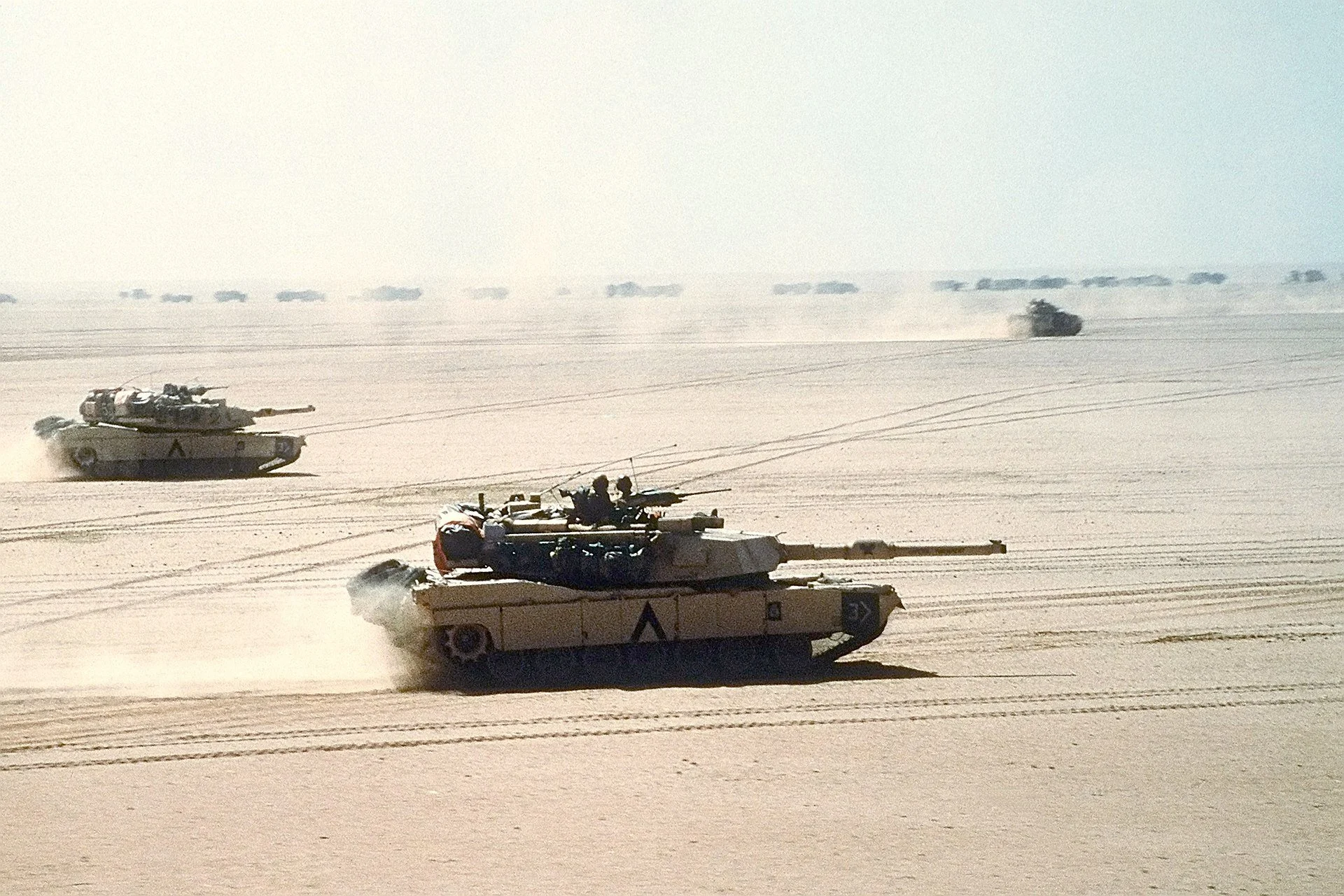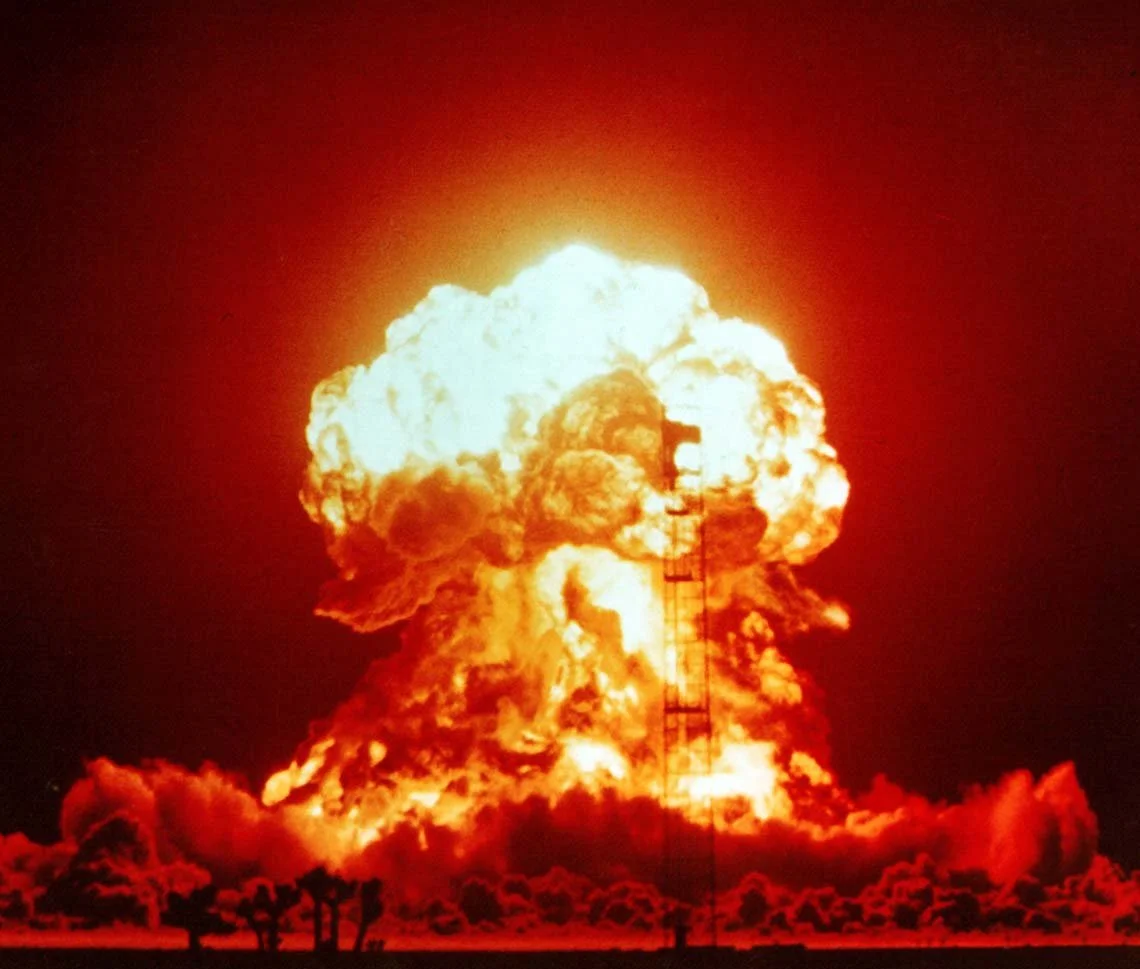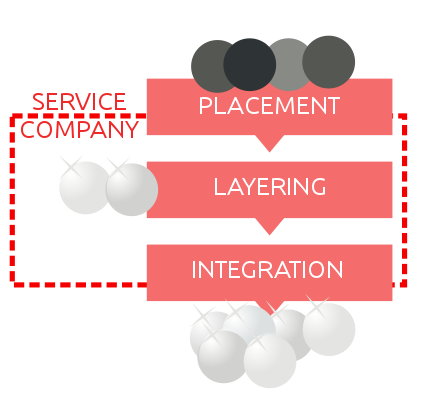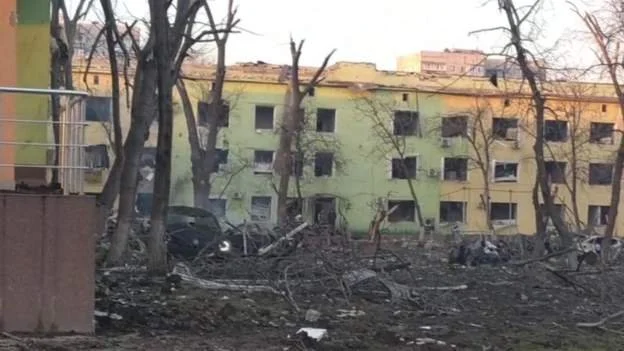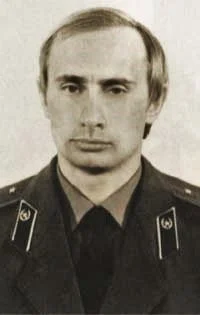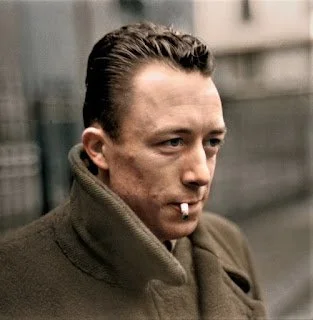American tanks in 1991 during the Gulf War.
SOMERVILLE, Mass.
I have been dipping into Blood and Ruins: The Last Imperial War 1931-1945 (Viking 2021), by Richard Overy, of the University of Exeter, one of Britain’s foremost historians. The book is brilliant, difficult enough to pick up – 994 pages! – harder still to put down. I have been trying to understand why World War II ended the way it did.
World War II was the America’s first successful war of partition on the Eurasian continent: East and West Germany, the Iron Curtain, all that. A second successful war of seemingly permanent partition followed soon thereafter, in Korea.
The record since then hasn’t been good. America’s wars in Vietnam, Afghanistan and Iraq all failed to achieve their aims. Now the U.S. is engaged in a proxy war with the Russian Federation, in defense of Ukraine. Meanwhile, China’s determination to take possession of Taiwan looms.
Partition failed in Vietnam, Afghanistan and Iraq because American tactics were inept, borders were porous, enemy supply lines were short; and because the use of nuclear weapons, by now widely held, had become taboo.
What are the chances that the invasion of Ukraine will end in negotiated partition?
I don’t know anything more about the prospects for peace in the war in Ukraine than what I read in four major newspapers I follow. As a former newspaperman, for whom the war in Vietnam dominated most of a decade in my youth, I observe that coverage of the Russian invasion often is accompanied by the same overtones of moral outrage that were characteristic of the early stages of the wars in Vietnam, Afghanistan and Iraq. The Financial Times seems the most consistently balanced of the leading English-language papers, admitting all viewpoints to its opinion pages, favoring none.
But even the FT seems uninterested for the most part in Russia’s side of the story. Vladimir Putin has been clear all along about his objections to NATO enlargement. But the 6,000-word essay he published a year ago, “On the Historical Unity of Russians and Ukrainians,” spelled out in some detail his version of NATO’s plans for Ukraine’s membership – and for the privatization of Ukraine’s economy.
I am as disgusted by the tradition of Russian disdain for legality, today in Ukraine, as I was in 1956, in Hungary; in 1968, in Czechoslovakia; in 1979, in Afghanistan. This Washington Post story – Russia wants Viktor Bout back, badly. The question is: Why? (subscription may be required) – is evidence that the tradition of lawless brutality has continued under Putin. But in a second-best world, when you routinely can’t get what you want, you must learn to get what you need.
For all this is unfolding against the backdrop of climate change. That story, too, I have been living with for most of my career as a journalist. In the last decade or two, the experience has come to be widely shared. The best metaphor for explicating global warming I know is the one associated with Michael Mann, of Penn State University, author, most recently, of The New Climate War: The Fight to Take Back Our Planet (Public Affairs, 2021).
Last week Mann told an interviewer for National Public Radio, “We frame this as if it’s some sort of cliff that we go off at three degrees Fahrenheit warming or four degrees Fahrenheit warming. That’s not what it is. It’s a minefield. And we’re walking farther and farther out onto that minefield. And the farther we walk out onto that minefield, the more danger that we are going to encounter.”
So back to Blood and Ruins. I cannot recommend Overy’s book highly enough. At the very beginning, he explains that he has taken his title from Imperialism and Civilization, a well-received 1929 book by Leonard Woolf, a political economist (and husband of the novelist Virginia Woolf). “Imperialism, as it was known in the nineteenth century, is no longer possible,” wrote Woolf, “and the only question is whether it will be buried peacefully or in blood and ruins.”
On the last page of his text, Overy concludes, “The Long Second World War… ended not only a particular form of empire, but discredited the longer history of the term.” He quoted the Oxford Africanist Margery Perham from a lecture in 1961 on what she believed had been a profound historical shift: “All though the sixty centuries of more or less recorded history, imperialism, the extension of political power by one state over another, was… taken for granted as part of the established order.”
Since 1945, however, she continued, the only authority that people would now accept “is that which arises from their own wills, or can be made to appear to do so.” Hence the scramble for the status of nationhood since the ‘50s, Overy wrote: There were193 sovereign countries, according to the United Nations, as of 2019.
Has the emergence of China as a hegemonic superpower and Putin’s determination to bundle together Russians, Belarusians and Ukrainians in what he calls “a single triune nation,” changed all that? Probably it has. The pressing question now is whether the short-lived period of “the end of history” will conclude relatively peacefully, or enter a lengthy era of heat and ruins.
. xxx
A year ago, on the advice of a knowledgeable friend, I argued that Tunisians deserved a second chance to build a working system of government.
Tunisia had been celebrated as the only Arab nation to turn towards democratic rule since the “Arab Spring” of 201l sent autocrat Zine El Abidine Ben Ali into exile, after 20 years in power. A democratic constitution was adopted in 2014, but a series of coalition governments failed to solve the once-prosperous nation’s growing economic problems and religious strife. Law professor Kais Saied was elected in a landslide in 2019 and sent parliament home in July 2021 to rule by decree since then.
The draft of a new constitution, which, if adopted, would weaken term limits and extend presidential powers considerably, was endorsed by something like 92 percent of those who voted.
The trouble is, only 27.5 percent of eligible voters went to the polls, reflecting a boycott of the referendum by several leading parties. With food and energy prices rising, unemployment high, and tourism stagnant, the situation facing Saied does not seem promising.
David Warsh, a veteran columnist and an economic historian, is proprietor of Somerville-based economicprincipals.com, where this essay originated.
Global average temperature, shown by measurements from various sources, has increased since the start of the Industrial Revolution.

